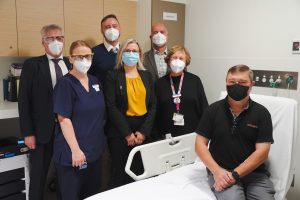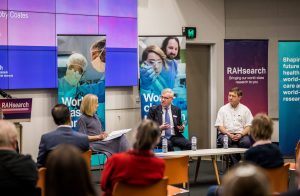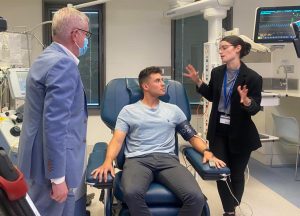Central Adelaide researchers have published game-changing data that’s paving the way for a potential cure for type 1 diabetes.
The new study documents the success of a revolutionary new method which involves implanting insulin-producing islet cells into an artificial skin, improving their chances of survival.
A finite supply of much needed donor cells
Current treatment involves transplanting donated islet cells into the liver to help diabetics to produce their own insulin.
But with a limited blood supply in the liver, about 75 per cent of donated islet cells die in the first 24 hours using this treatment.
“You have to process three pancreases to get one that will work, so transplanting into the liver is not the most efficient use of precious finite donations,” said Professor Toby Coates AO, Director of Kidney and Islet Transplantation at the Royal Adelaide Hospital.
The foundation for a cure
Professor Coates and his colleagues are pioneering a game-changing alternative.
Instead of inserting directly into the liver, they’re transplanting islet cells into the skin inside a biodegradable polymer foam (NovoSorb® BTM). This foam provides a scaffold that supports the growth of new blood vessels, providing an oxygen-rich environment for the donated islet cells, improving their ability to survive and deliver insulin to the rest of the body.
This pre-clinical study is the first to demonstrate the survival of human islet cells outside of the liver and in the skin.
“This study is a direct result of Professor John Greenwood’s visionary development of the BTM, as a treatment for severe burns injury, and his idea that it might be an ideal site for islet transplantation,” said Professor Coates.
Professor Coates and his colleagues are now conducting a world-first human trial with participants at the Royal Adelaide Hospital and hope to share their findings in the next 18 months.
Click here to read more about the human trial.
More on the research
Click here to read the published paper.
You can also hear directly from Professor Toby Coates AO who spoke at RAHsearch 2022:
This work is supported by JDRF International, The Hospital Research Foundation Group and PolyNovo Limited.
Pictured above: Professor Toby Coates AO, Director of Kidney and Islet Transplantation at the Royal Adelaide Hospital.



